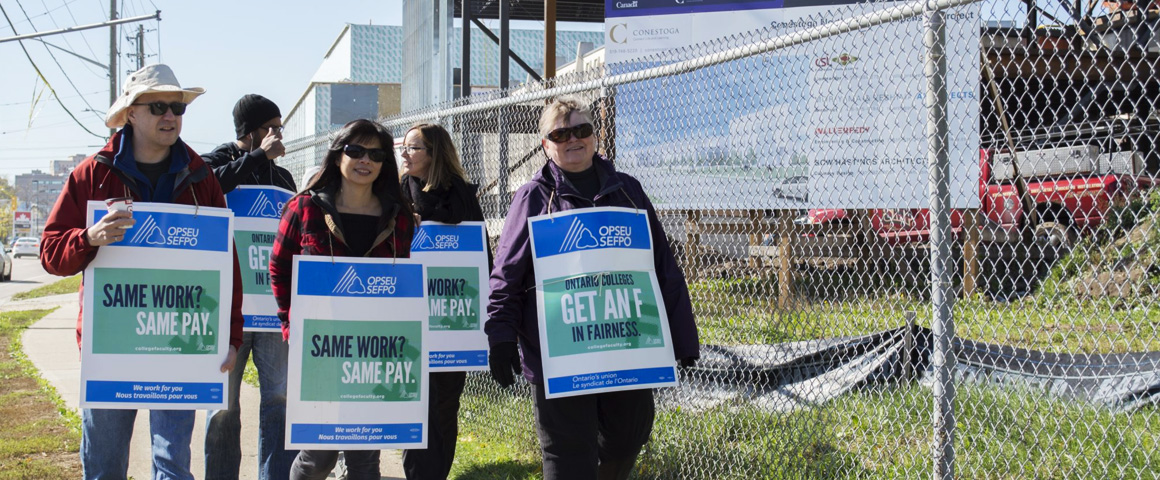On October 16, 12,000 college faculty went on strike at Colleges of Applied Arts and Technology (CAATs) across Ontario. The faculty are members of the Ontario Public Service Employees Union (OPSEU).
The strike began after the College Employer Council (CEC) rejected a streamlined final offer from the union and walked away from the table. OPSEU negotiators described the offer as “bare minimum we need to ensure quality education for students and treat contract faculty fairly.” The union’s offer included several non-monetary proposals such as stronger recognition of academic freedom, improved seniority provisions, and longer notice periods for teaching contracts and work assignments.
The offer also included the union’s key demand for a 50:50 ratio of full-time to non-full-time faculty. Ontario colleges have steadily and deliberately increased the number and proportion of part-time and contract teaching positions, which currently outnumber full-time positions by nearly three times.
The strike is also about the faculty’s desire to enhance the quality of education they provide to students. The union has argued that precarious employment for faculty directly erodes their ability to properly prepare and present courses.
As with many other public services and institutions in Ontario, CAATs have increasingly adopted corporate and privatized labour practices. In all of these cases this trend has undermined the quality and accessibility of those services, and it has sharply eroded working conditions and union strength.
Ontario Communist Party leader, Dave McKee, observes that, “One of the underlying issues to this dispute is the provincial government’s ongoing underfunding of colleges. At a time when colleges have expanded their mandates, provincial funding has dropped by nearly 20%, and continues to fall.” OPSEU has noted that Ontario ranks tenth out of ten provinces when it comes to college funding on a per-student basis, with the government committing to a pitiful 0.2% increase for the 2017-18 year, and zero increase for 2018/19.
McKee said that pressure from underfunding has led colleges to make up the difference through a combination of increased student fees and increasingly precarious employment conditions for faculty. “Instead of standing up for public education at the college level and demanding adequate funding, the colleges have used government underfunding as an excuse to increase precarious employment for faculty, to pursue different forms of privatization, and to diminish education for 300,000 college students in Ontario.”
The Communist Party is demanding that the College Employer Council return immediately to the bargaining table and negotiate a fair contract with faculty. The Party is also calling on the provincial government to increase college funding now, so that faculty can provide students with the education they need and deserve.
“As Ontario prepares for a provincial election next spring,” says McKee, “we will push hard for an immediate halt to the government’s privatization strategy, and for the reversal of two decades of corporate tax cuts that currently total $18 billion in lost revenue each year. The working class in Ontario needs that revenue to adequately fund more, not less, public services and institutions.”
College faculty have set up picket lines at each of Ontario’s 24 CAATs, and have already received strong support from other labour and community organizations.
More information and updates are available at the union’s strike page, www.collegefaculty.org.




